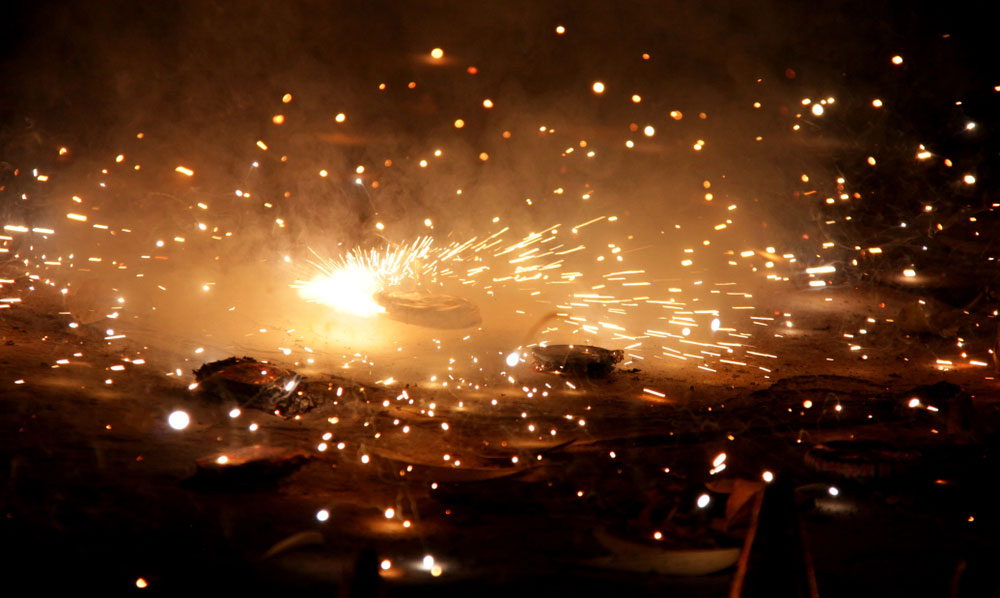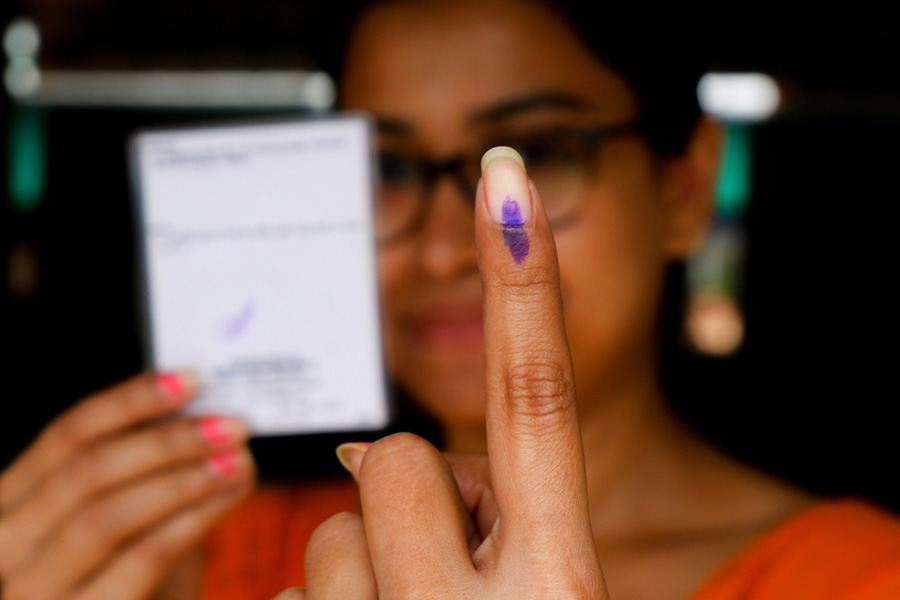The Supreme Court on Tuesday said it could not deprive of their livelihood lakhs of families dependent on manufacturing firecrackers, observing that “we can’t let people go hungry” and “generate unemployment”.
A bench of Justices S.A. Bobde and S. Abdul Nazeer said the authorities needed to conduct a comparative study to identify the proportionate levels of pollution caused by vehicles and firecrackers before any decision is taken.
“We cannot give money or jobs or support people who will lose their jobs if we shut down firecracker-manufacturing units. We do not want to generate unemployment,” Justice Bobde, heading the bench, observed during the hearing of a PIL seeking a blanket ban on the bursting of firecrackers on the ground that they caused pollution.
The PIL had been filed by two minors — sons of Supreme Court advocates Gopal Sankarnarayan and Amit Bhandari.
The court had in October last year banned the use of firecrackers to curb rising environment pollution, allowing only a two-hour window on Diwali and other festival days.
While forbidding the use of conventional firecrackers, the top court had permitted green crackers, which cause less emissions and are not as noisy, provided an expert panel having members from the National Environmental Engineering Research Institute, the Centre for Scientific and Industrial Research and the Petroleum and Explosives Safety Organisation approved it.
Following the ban, the cracker industry had moved the apex court pleading that the directive had deprived five lakh families of their livelihood in Tamil Nadu’s Sivakasi district, a cracker hub.
The expert panel has not come out with norms for the manufacture of green crackers, causing more uncertainty for these families and the manufactures as factories are closed since October last year, senior advocate C.S. Vaidyanathan, appearing for the manufactures, had told the court.
Agreeing with the submission, Justice Bobde observed: “Legal trade cannot be banned. At best licence conditions need to be changed. We can’t let people go hungry because some others think firecrackers are not good. Moreover, there are areas where crackers could be used without causing much damage. For example there can be community fireworks-bursting.”
Justice Bobde asked additional solicitor-general Atmaram Nadkarni if any comparative study had been done to evaluate the extent of pollution caused by firecrackers and vehicles.
“We would like to know whether there was any comparative study on what proportion of pollution is caused by automobiles. It seems you are just running after firecrackers, but bigger pollution contributor is perhaps vehicles,” Justice Bobde said.
The court adjourned the matter to April 3.
On the next date of hearing, the Centre and the expert panel are expected to respond to the court’s suggestion on furnishing comparative data.












